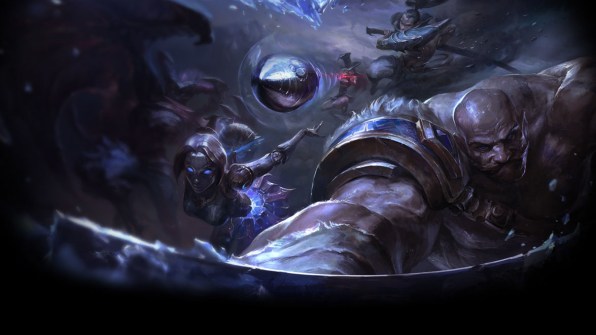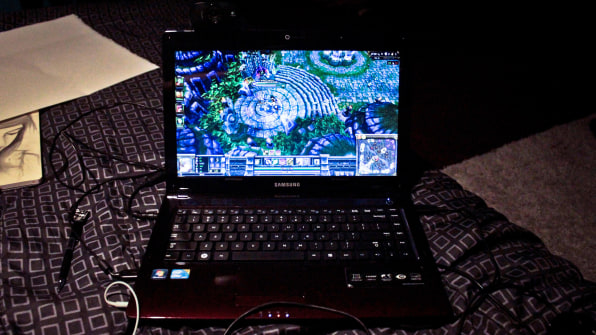China Communication University Of China Game Design
2015 has been a good year for feedback. The annual performance review is under fire from what seems like all sides, and the notion that giving employees regular, continuous feedback is gaining popularity in its place.
But as more people join the ranks of remote workers, feedback may soon become harder to give. Face time is still the default mode for delivering constructive criticism. For companies and managers, that presents a problem–but the world of gaming may hold some answers.
Battling Toxic Gameplay
Unlike most organizations, games are purpose-built to provide continuous, real-time feedback. You win, you lose, you level up and feel a sense of satisfaction when you've improved. Game designer Jane McGonigal has argued that that feedback loop helps gamers create strong social relationships based on collaboration toward shared goals.
Riot Games is a leader in the gaming industry for employee satisfaction. Ranked number 13 in Fortune's best places to work, the company has built a strong culture around feedback, using a combination of annual 360-degree reviews and one-on-one conversations between employees and managers. What's more, it's running experiments in some of its games–including the hit League of Legends–to inform those performing management practices.

In industry jargon, "toxicity" refers to any poorly constructed or offensive feedback among players. According to League of Legends designer Jeffrey Lin, Riot saw toxicity as a major problem in that game. Although only 3% of players regularly use toxic language, everyone seemed to have their bad days. That isn't true just in League of Legends. The more players there are in a game, the greater the likelihood of toxicity. In fact, Riot found negative feedback in cross-team chats in 81.7% of its games. And that had an impact. When players vented their emotions using negative language, team performance dropped significantly.
So Riot came up with two solutions. The first was to turn off a player's chat logs when they were using toxic language and send them a notification. A week after putting that strategy in place, toxic language decreased by 32.7%.
Second, game moderators held online tribunals asking gamers to give feedback on toxic behavior, then voted on the penalties. Some players expressed surprise when they reread their own comments and the reactions from other players. Few realized the impact their words had on the rest of the team, and most took steps to reform their own behavior.

From The Virtual World To The Real World
I spoke with Alexander Brazie, a former game designer at Riot Games and Blizzard, about why feedback is so important. In most workplaces–and even in the game industry itself–people working in different areas have different ways of speaking, fueling conflicts based on misunderstandings. That's even more common in the virtual worlds of multiplayer games. One reason, as Brazie explained, is because "games get you emotionally hooked. People in emotionally charged states are generally not the best people to be giving feedback."
Work environments aren't immune from emotional conflict, either. When conflicting ideas, talents, and egos are at play, it's easy for toxic language to seep into conversations, sometimes without the culprits even realizing it. Remote workers, who can't use facial expressions or body language to convey their intentions, are even more likely to unknowingly give the wrong impression.
One-on-ones can help break this cycle of toxic feedback, even among telecommuters. Brazie explained, "If you really want to solve a problem, you first need to give your employees the tools and experience they need to communicate on less stressful topics." His manager at Blizzard took time to work with him on reforming his communication style, and that knowledge has stayed with him throughout his career.
Riot holds one-on-one chats between employees and managers once a week, which Brazie sees as the key to the company's performance management strategy. With the insights from their experiments, Riot is now considering expanding this type of regular "micro-feedback."
Leveling Up
Brazie is now a consultant for Xelnath Enterprises, specializing in game design analysis and cross-disciplinary conflict resolution. When a conflict occurs, he says, "the best way to approach the situation is to start off with establishing goals you have in common. You will find you actually agree with someone 80% of the way." One thing that helped change the team climate in League of Legends was getting the most toxic players to understand the impact their negative comments had on their teams' success rate.
Focusing on the positive side of online feedback, Riot implemented an "honor initiative," letting players to award points to teammates and opponents who show helpful or friendly behavior.
The addition has become wildly popular and is expected to incentivize players to follow the new, more productive social norms. Riot is even giving badges and other awards to increase the visibility of the most regularly commended players.
Some companies are already doing similar things in their organizations, like unyoking performance reviews from promotions in order to make good behavior an end in itself–and one that benefits teams first and individuals second.
And many of those businesses are finding something else, too: Separating the immediate rewards and penalties from individual performance also takes the pressure off receiving feedback in the first place.
Steffen Maier is the co-founder of Impraise an innovative web-based and mobile solution for actionable, timely feedback at work. Follow him on Twitter at @stgmaier.
China Communication University Of China Game Design
Source: https://www.fastcompany.com/3054649/these-game-designers-are-using-multiplayer-games-to-study-effective-feedback
Posted by: bakersalogned.blogspot.com

0 Response to "China Communication University Of China Game Design"
Post a Comment